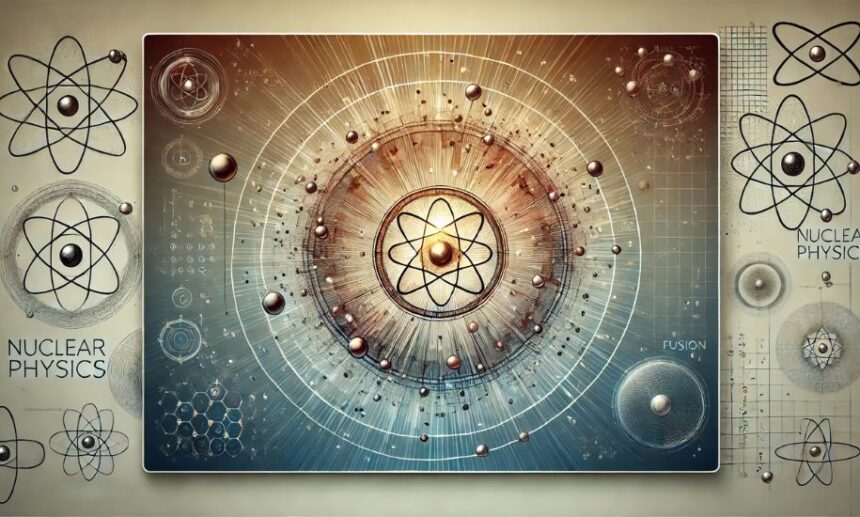Nuclear Physics is one of the most intriguing branches of science, exploring the fundamental components of matter and the forces that bind them together. At Physics Heaven, we delve into this fascinating field to uncover the mysteries of the atomic nucleus and its applications in the real world. This article takes you on an in-depth journey into Nuclear Physics, discussing its principles, significance, and real-world implications.
What is Nuclear Physics?
Nuclear Physics is the study of the atomic nucleus, the dense center of an atom consisting of protons and neutrons. It focuses on understanding the interactions within the nucleus, the forces at play, and the processes such as nuclear decay, fusion, and fission. This field plays a critical role in advancing our understanding of the universe and has numerous applications, from energy production to medical technologies.
The Fundamentals of Nuclear Physics
Nuclear Physics is built on several core concepts:
- Atomic Nucleus: The nucleus is composed of protons, which carry a positive charge, and neutrons, which are neutral. These particles are held together by the strong nuclear force, one of the four fundamental forces in nature.
- Nuclear Reactions: These include processes like fusion, where nuclei combine to form a larger nucleus, and fission, where a nucleus splits into smaller nuclei. Both reactions release enormous amounts of energy.
- Radioactivity: Some nuclei are unstable and undergo radioactive decay, emitting particles or radiation to achieve stability. This phenomenon is the basis for nuclear power and medical imaging technologies.
The Role of Nuclear Physics in Energy Production
One of the most significant applications of Nuclear Physics is in energy generation. Nuclear reactors harness the energy released during nuclear fission to produce electricity. This process is not only highly efficient but also produces fewer greenhouse gases compared to fossil fuels. At Physics Heaven, we emphasize the importance of Nuclear Physics in driving sustainable energy solutions.
Medical Applications of Nuclear Physics
Nuclear Physics has revolutionized the medical field. Techniques such as positron emission tomography (PET) scans and radiation therapy for cancer treatment rely on principles of Nuclear Physics. Radioisotopes, produced through nuclear reactions, are used in diagnostics and treatment, showcasing the immense potential of this field in improving healthcare.
Nuclear Physics and Space Exploration
Understanding Nuclear Physics is crucial for space exploration. Nuclear-powered spacecraft enable long-term missions by providing a reliable energy source far from the Sun. Additionally, studying cosmic rays and other nuclear phenomena in space helps scientists uncover the origins of the universe.
Safety and Challenges in Nuclear Physics
Despite its benefits, Nuclear Physics comes with challenges. The management of nuclear waste, the risks of radiation exposure, and the potential for misuse in weapons require stringent safety measures. Research continues to focus on developing safer nuclear technologies and addressing these concerns.
Future Prospects of Nuclear Physics
The future of Nuclear Physics is bright, with ongoing research exploring advanced reactors, fusion energy, and quantum phenomena. These advancements hold the promise of addressing global challenges such as energy security and climate change. At Physics Heaven, we celebrate the innovative spirit driving Nuclear Physics toward a better tomorrow.
Conclusion
Nuclear Physics is a cornerstone of modern science, offering insights into the building blocks of matter and their interactions. Its applications span energy, medicine, space exploration, and beyond. As a pivotal field of study, Nuclear Physics continues to shape our understanding of the world and drive technological progress. Physics Heaven is dedicated to highlighting the profound impact of this fascinating discipline.
Frequently Asked Questions (FAQs)
What is Nuclear Physics?
Nuclear Physics is the study of the atomic nucleus, its components (protons and neutrons), and the interactions that govern nuclear reactions.
What are the applications of Nuclear Physics in daily life?
Nuclear Physics impacts energy generation, medical diagnostics and treatment, industrial applications, and scientific research.
How does nuclear energy work?
Nuclear energy is generated through nuclear fission, where atomic nuclei split to release energy, or nuclear fusion, where nuclei combine.
Is nuclear energy safe?
With proper safety measures, nuclear energy is a safe and efficient energy source, though it requires strict handling of nuclear waste and radiation.
What are radioisotopes used for in medicine?
Radioisotopes are used in imaging (like PET scans) and treatment (such as radiation therapy for cancer).
How does Nuclear Physics contribute to space exploration?
Nuclear-powered spacecraft and research into cosmic phenomena rely on Nuclear Physics for sustainable space missions.
What are the environmental impacts of nuclear power?
Nuclear power produces minimal greenhouse gases but requires careful waste management to mitigate environmental risks.
What is the difference between nuclear fusion and fission?
Fusion combines light nuclei to form a heavier nucleus, releasing energy, while fission splits heavy nuclei into smaller ones, also releasing energy.
Why is Nuclear Physics important for future energy solutions?
Nuclear Physics offers sustainable energy solutions through advanced reactors and potential fusion energy, addressing global energy needs.
How is Physics Heaven contributing to Nuclear Physics education?
Physics Heaven provides in-depth articles and resources to educate readers about Nuclear Physics and its vast applications.








